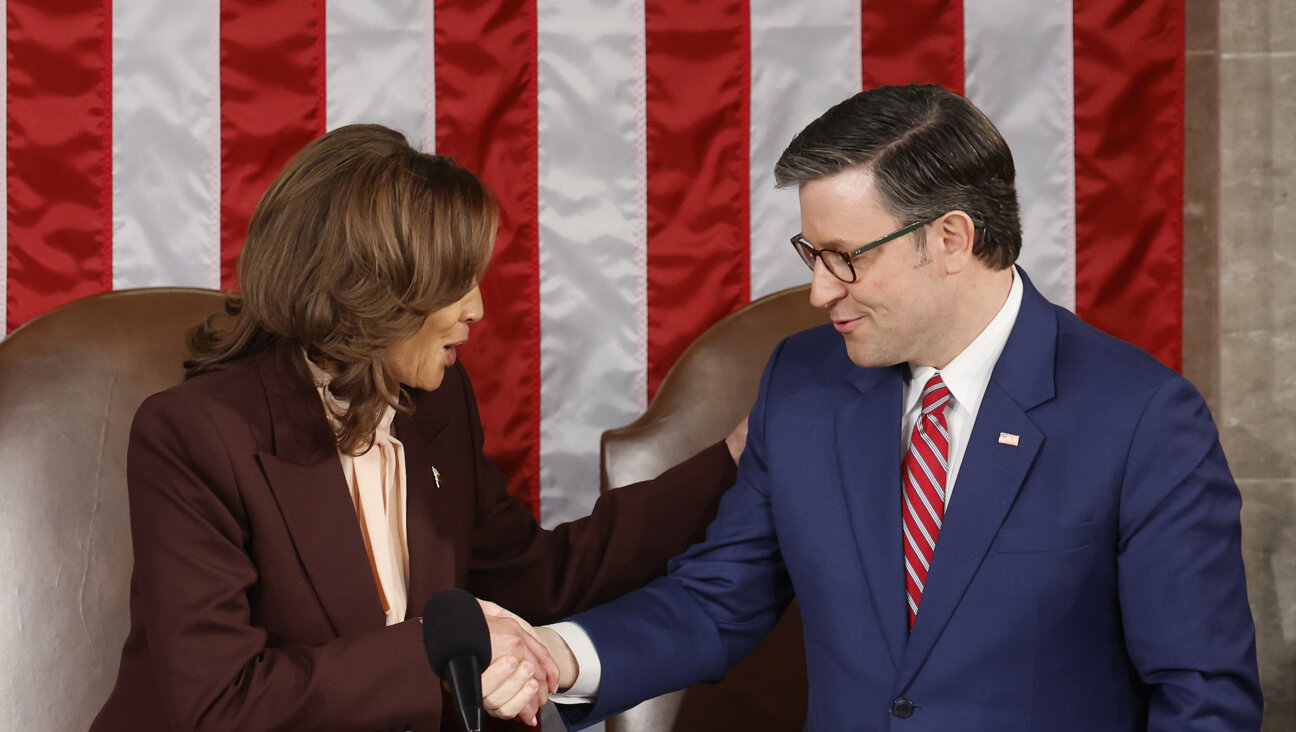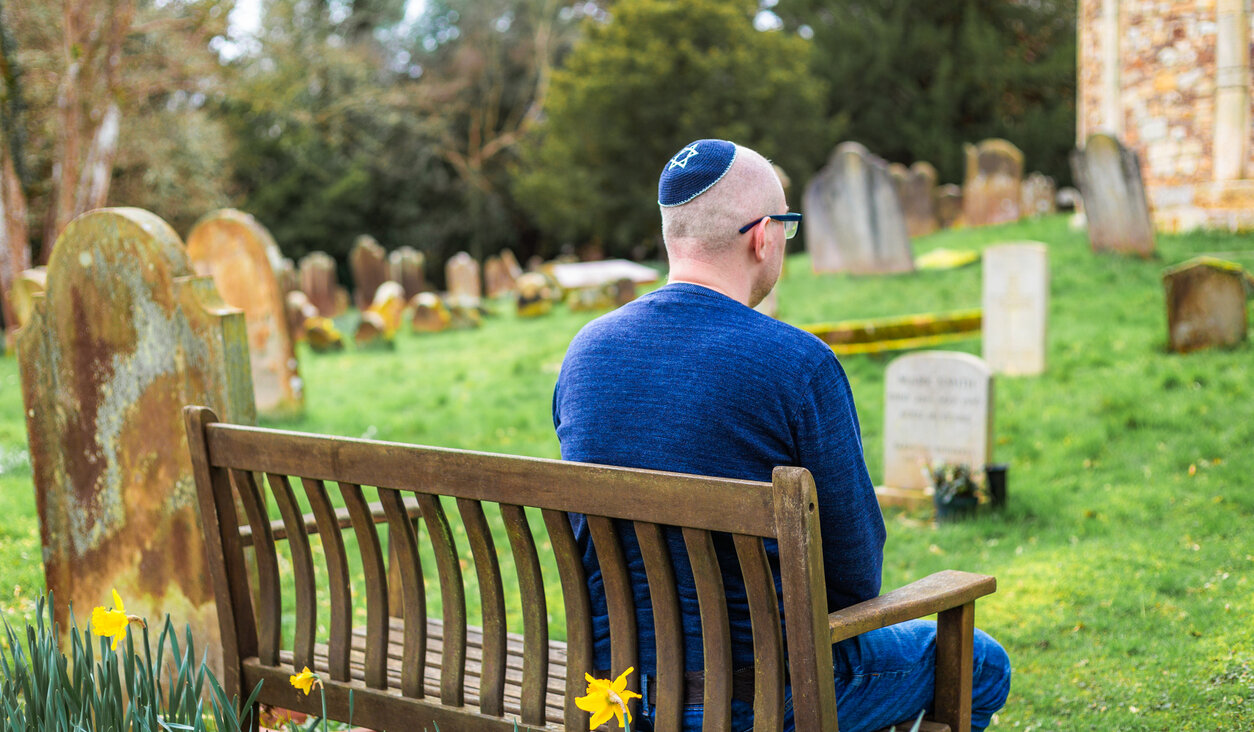Bonhoeffer biopic tells of a pastor turned would-be Hitler assassin — but is the story true?
The Dietrich Bonhoeffer in Todd Komarnicki’s new film strays troublingly from the historical record
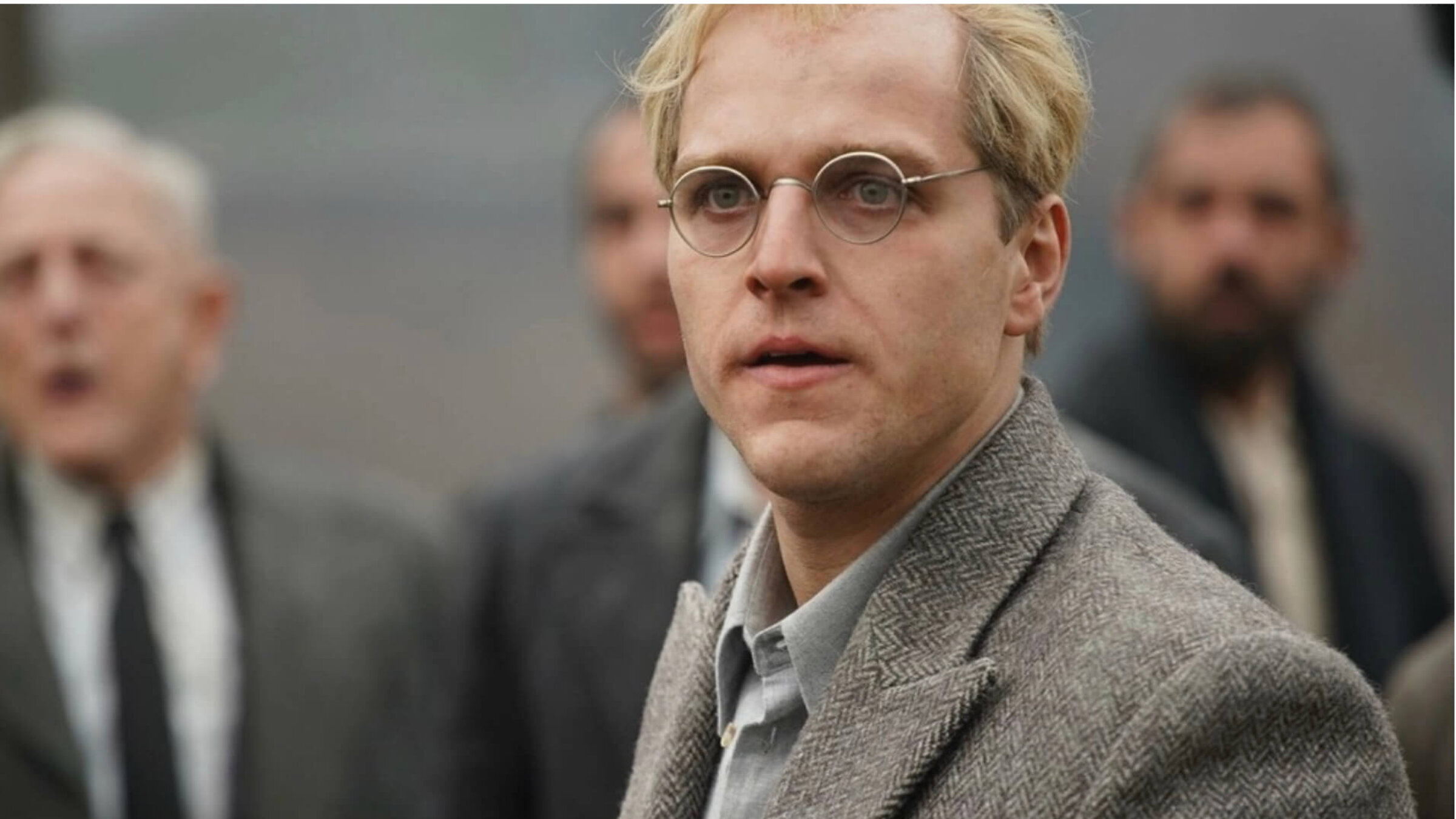
Jonas Dassler stars as Dietrich Bonhoeffer. Photo by Getty Images
At a Chicago park that served as the official protest venue earlier this year for the Democratic National Convention, it looked like trouble when marchers carrying Israeli flags headed toward the overwhelmingly Gaza-sympathetic crowd.
But potential confrontation gave way to confusion when onlookers saw the marchers also carried poster-sized black and white photos of a pale, bespectacled young man. If anything, bystanders looked confused. “Who’s that?” some muttered.
Today, thousands of moviegoers will instantly recognize the face of Dietrich Bonhoeffer. The nationwide premiere of Bonhoeffer: Pastor. Spy. Assassin is the latest entry in an endless stream of films, documentaries and books devoted to studying — or deifying, or attempting to demystify — the enigmatic German theologian who (plot spoiler) was executed by the Nazis a month before their 1945 surrender.
Some Bonhoeffer depictions cast him as another Oskar Schindler, driven to save Jews at all costs. Others laud his unbending Christian faith as a model for Christian Nationalists crusading against the left.
For writer and director Todd Komarnicki (the writer of Sully and producer of Elf), the dilemma concerning which Bonhoeffer to present was simpler, and more personal: “If I could have a subtitle for my movie, it would just be ‘My Bonhoeffer,’” he told me this week.
“I’m not trying to say this is the definitive Bonhoeffer,” he said, “but rather, this is the man that I encountered in his writing, and how it touched me as an artist and as a Christian.”
Yet Komarnicki’s intentions haven’t convinced critics of the film, or at least of its promotion, which have included a depiction of the pacifist holding a gun. Members of the Bonhoeffer family and the scholarly International Bonhoeffer Society have issued statements expressing concern. So have the film’s star, Jonas Dassler, and other actors, condemning anyone who would use the film to promote Christian nationalism or violence, though not the film itself.
“We’re concerned about the way in which the film misrepresents his theology,” said Victoria Barnett, a leading scholar of the Holocaust and religion at the University of Virginia, the author of After Ten Years: Dietrich Bonhoeffer and Our Times and former general editor of the English edition of the 17-volume Dietrich Bonhoeffer Works.
“It’s a fantasy. They’ve made lots of things up to actually contradict who he was and what he did,” she said. “The subtitle ‘My Bonhoeffer’ may be accurate, but the problem is that popular audiences are swept up with things, and may think that this is what actually happened.”
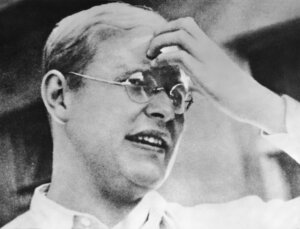
Of little dispute is the fact that Bonhoeffer was born in 1906 in Breslau in the well-to-do family of a prominent psychiatrist. Close to his older brother Walter, Dietrich is heartbroken and likely put on the path toward pacifism when Walter is killed shortly after his deployment in World War I. Soon after, he announces his intention to become a pastor, surprising his intellectual but not terribly religious family.
As an exchange student at New York’s Union Theological Seminary, he is introduced by a Black classmate to Harlem and the Abyssinian Baptist Church, with which Bonhoeffer becomes enthralled as a truer manifestation of the Gospel to the masses than his German Lutheran church. He’s also introduced to American racism.
His return to Germany comes as the Nazis rise to power and, when they seize it, the capitulation of most German church leaders to demands they incorporate Aryan theology in their liturgy and exclude Jewish influences, including the Old Testament. Bonhoeffer joins a dissident Confessing Church that refuses to accept those edicts and is chosen to run its seminary in a rural outpost until it’s eventually shut down by the Gestapo.
Concurrently, Bonhoeffer’s brothers-in-law join anti-government conspirators, who ultimately decide they must kill Hitler, a plot they share with Bonhoeffer.
Up to this point, the storyline matches two earlier film treatments, Bonhoeffer: Agent of Grace (2000) and the 2003 public television documentary Bonhoeffer, produced by Martin Doblmeier. But then the current film veers off, showing the protagonist — until then an avowed pacifist — intimately involved in the failed assassination attempts (hence the film’s title) and personally spiriting seven Jews to Switzerland.
That’s problematic, Barnett said, because Bonhoeffer’s role was tangential at best.
“He was not directly involved in the rescue,” said Barnett, explaining the Switzerland group was actually 14, not seven, with 11 being Christians of Jewish descent, though nonetheless subject to Nazi persecution.
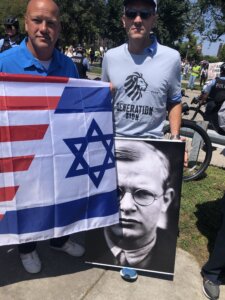
Bonhoeffer was even less connected to the failed Hitler assassination attempts — a role that would have conflicted with his pacifism — though he was privy to the plots and served as something of a double-agent through his church connections to garner support from the Allies.
Komarnicki acknowledges those criticisms but maintains his work is overall true to the history, and that he only took cinematic license with the compression of time, such as fast-forwarding by several years the “first they came for the Jews” quote attributed to fellow theologian Martin Niemoller.
He also disavows any connection to the 2009 book, Bonhoeffer: Pastor, Martyr, Prophet, Spy by author and conservative radio host Eric Metaxas that has drawn even greater ire.
“This is absolutely not based on Eric’s book,” Komarnicki said. “This movie actually refutes everything that Christian nationalism stands for. All the things that are being done in the name of Jesus by the far right are absolutely antithetical to the teachings of Jesus.”
The film is released by Angel Studios, a Christian production company that saw a $250 million sleeper hit with the 2023 child-trafficking film “Sound of Freedom,” which raised eyebrows for possibly promoting conspiracy theories, which the company denies.
If Bonhoeffer’s legacy has been appropriated by causes left and right, it’s also been evolving ever since his death, said Dartmouth College Jewish Studies scholar Susannah Heschel. His protege and early biographer Eberhard Bethge made little mention of antisemitism or the Holocaust in a 1970 biography of his mentor, she said, concentrating on the German church struggle.
“In America, the worst thing about Nazism was that the Nazis murdered six million Jews, whereas in Germany, theologians were concerned that the Nazis had persecuted the churches,” Heschel said.
If new material or interpretations of Bonhoeffer’s work have arisen since then, they haven’t persuaded Yad Vashem, the World Holocaust Remembrance Center, to include his name in the righteous among nations.
But Barnett said it’s not necessary to make him into another Schindler. “His legacy is actually a very critical one of the failures of his church in Christianity,” she said. “How would we read him if we were not looking for a hero story, but reading him for insight and guidance into how to be a good person in this world?”
The movie’s end offers some of that, from a Christian perspective (spoiler alert again). Bonhoeffer goes without protest to the gallows, fully clothed — though every real-life account says he was naked. He shares the Eucharist with fellow prisoners and finds peace, reminiscent of Jesus before the cross. Evangelicals will likely be deeply moved. Pacifists too might resonate with his embodiment of the creed attributed to Gandhi that “There are many causes that I am prepared to die for, but no causes that I am prepared to kill for” — especially since ultimately, he killed no one.
And those protesters at the DNC in August? Later that day, they identified themselves to me as Jewish and Christian members of Generation Zion, a subset of a larger group called the Philos Project that supports Israel and “seeks to promote positive Christian engagement in the Near East.” Would Bonhoeffer be among them today?
Maybe not “My Bonhoeffer,” but possibly yours.








